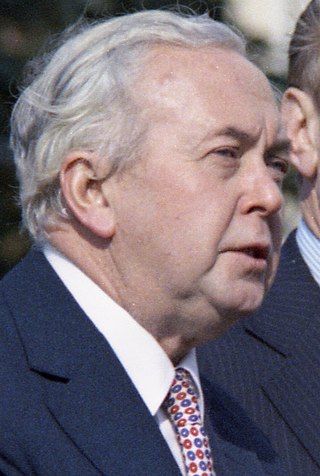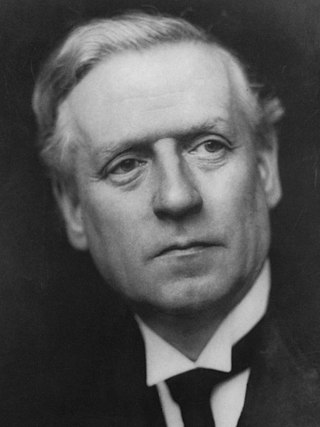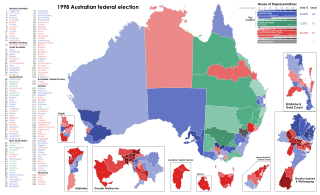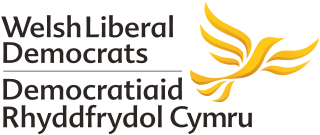Related Research Articles

The 1983 United Kingdom general election was held on Thursday 9 June 1983. It gave the Conservative Party under the leadership of Margaret Thatcher the most decisive election victory since that of the Labour Party in 1945, with a majority of 144 seats and the first of two consecutive landslide victories.

The October 1974 United Kingdom general election took place on Thursday 10 October 1974 to elect 635 members of the House of Commons. It was the second general election held that year; the first year that two general elections were held in the same year since 1910; and the first time that two general elections were held less than a year apart from each other since the 1923 and 1924 elections, which took place 10 months apart.

The 1950 United Kingdom general election was the first to be held after a full term of a majority Labour government. The general election was held on Thursday 23 February 1950, and was also the first to be held following the abolition of plural voting and university constituencies. The government's lead over the Conservative Party shrank dramatically, and Labour was returned to power but with an overall majority significantly reduced from 146 to just 5. There was a 2.8% national swing towards the Conservatives, who gained 90 seats. Labour called another general election the following year, which the Conservative Party won, returning Churchill to government after six years in opposition.

The 1935 United Kingdom general election was held on Thursday 14 November 1935. It resulted in a second landslide victory for the three-party National Government, which was led by Stanley Baldwin of the Conservative Party after the resignation of Ramsay MacDonald due to ill health earlier in the year. It is the most recent British general election to have seen any party or alliance of parties win a majority of the popular vote.

The 1923 United Kingdom general election was held on Thursday 6 December 1923. The Conservatives, led by Prime Minister Stanley Baldwin, won the most seats, but Labour, led by Ramsay MacDonald, and H. H. Asquith's reunited Liberal Party gained enough seats to produce a hung parliament. It is the most recent UK general election in which a third party won over 100 seats and the most narrow gap between the first and third parties since. The Liberals' percentage of the vote, 29.7%, trailed Labour's by only one percentage point and has not been exceeded by a third party at any general election since.

The 1922 United Kingdom general election was held on Wednesday 15 November 1922. It was won by the Conservative Party, led by Prime Minister Andrew Bonar Law, which gained an overall majority over the Labour Party, led by J. R. Clynes, and a divided Liberal Party.

The December 1910 United Kingdom general election was held from 3 to 19 December. It was the last general election to be held over several days and the last to be held before the First World War.

The 1998 Australian federal election was held to determine the members of the 39th Parliament of Australia. It was held on 3 October 1998. All 148 seats of the House of Representatives and 40 seats of the 76 seat Senate were up for election. The incumbent centre-right Liberal/National Coalition government led by Prime Minister John Howard of the Liberal Party and coalition partner Tim Fischer of the National Party defeated the centre-left Australian Labor Party opposition led by Opposition Leader Kim Beazley, despite losing the nationwide popular and two-party preferred vote. However, the Australian Labor Party gained seats compared to the previous election.

The 1996 Australian federal election was held to determine the members of the 38th Parliament of Australia. It was held on 2 March 1996. All 148 seats of the House of Representatives and 40 seats of the 76-seat Senate were up for election. The Liberal/National Coalition led by Opposition Leader John Howard of the Liberal Party and coalition partner Tim Fischer of the National Party defeated the incumbent Australian Labor Party government led by Prime Minister Paul Keating in a landslide victory. The Coalition won 94 seats in the House of Representatives, which is the largest number of seats held by a federal government to date, and only the second time a party had won over 90 seats at a federal election.
A safe seat is an electoral district which is regarded as fully secure, for either a certain political party, or the incumbent representative personally or a combination of both. With such seats, there is very little chance of a seat changing hands because of the political leanings of the electorate in the constituency concerned or the popularity of the incumbent member. This contrasts with a marginal seat in which a defeat for the seat holder is considered possible. In systems where candidates must first win the party's primary election or preselection, the phrase "tantamount to election" is often used to describe winning the dominant party's nomination for a safe seat.

The 2005 United Kingdom general election was held on Thursday 5 May 2005, to elect 646 members to the House of Commons. The governing Labour Party led by Prime Minister Tony Blair won its third consecutive victory, with Blair becoming the second Labour leader after Harold Wilson to form three majority governments. However, its majority fell to 66 seats; the majority it won four years earlier had been of 167 seats. The UK media interpreted the results as an indicator of a breakdown in trust in the government, and especially in Blair.
A senatorial election was held on November 14, 1967, in the Philippines. The 1967 election for the members of the Philippine Senate were also known as the 1967 midterm election, as the date where the elected candidates take office falls halfway through President Ferdinand Marcos' four-year term. The administration Nacionalista Party won seven seats in the Philippine Senate while the Liberal Party won one seat; the Nacionalistas got the majority in the Senate after having twelve of the 24 seats in the Senate prior to the election.
Elections for the Senate of the Philippines were held on November 11, 1947, with eight of the 24 seats in the Senate being contested. These eight seats were elected regularly; the winners were eligible to serve six-year terms from December 30, 1947, until December 30, 1953. Gubernatorial and local elections were held on the same date.

The Welsh Liberal Democrats is a liberal, federalist political party in Wales, part of UK Liberal Democrats. The party is led by Jane Dodds, who has served as an MS for Mid and West Wales since May 2021. The party currently has one elected member in the Senedd and one Welsh seat in the UK House of Commons. It also has several members of the House of Lords. The party had 69 local councillors serving in principal authorities as of the 2022 local authority elections, up 10 from 2017.

The 2009 Queensland state election was held on 21 March 2009 to elect all 89 members of the Legislative Assembly, a unicameral parliament.

The 2012 St Helens Metropolitan Borough Council election took place on 3 May 2012 to elect members of St Helens Metropolitan Borough Council in Merseyside, England. One third of the council was up for election and the LabourPparty stayed in overall control of the council.
The 1998 Hackney London Borough Council election took place on 7 May 1998. All 60 members of Hackney London Borough Council were up for election. The elections took place as part of the 1998 London local elections.
References
- ↑ "By-Elections 1958-1961". Psephos. Archived from the original on 3 August 2008.